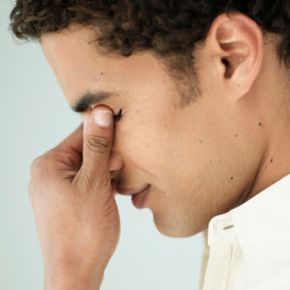Chances are good that if you've experienced the pain and agony of acute sinusitis more than once. Perhaps you're riding the antibiotic merry-go-round — sinus flare-up is followed by a course of antibiotics, a few weeks of feeling almost well, and then another sinus infection and on and on it goes. Or you may be a chronic sinusitis sufferer, all too familiar with daily sneezing, postnasal drip, stuffiness, and fatigue yet, blaming these symptoms on year-round allergy or colds.
If it's any consolation, you have plenty of company. Approximately 40 million Americans continually sniffle and sneeze from sinusitis, according to the most recent data from the National Center for Health Statistics. It is one of the leading chronic illness in the United States and has been since the mid-1980s.
Advertisement
As prevalent as sinusitis Is, however, modern medicine has relatively little to offer sufferers, and definitely no cure. Many eventually are told by a conventional otolaryngologist (ear, nose and throat doctor) that they'll "just have to live with it." That's often when they contact Dr. Robert Ivker, a Denver-based osteopath, or find his book "Sinus Survival" (Tarcher/Putnam, 2000). "I am a doctor of last resort," he acknowledges. "Most of the patients who come to me have had longstanding sinusitis and often multiple sinus surgeries."
Dr. Ivker is best known for a holistic method of treating sinusitis, allergies, and colds that he developed to soothe his own ailing mucus membranes and then used with equal success on patients in his practice. This approach became his Sinus Survival program, a comprehensive mental, spiritual, physical, and environmental course of action to heal both the cavities in the skull and a person's life.
Three Actions for Sinus Relief — Water, Irrigation and Exercise
Though he believes all the components of his program ultimately are necessary for healing sinuses, Dr. Ivker says sinus sufferers can start feeling better by doing just one thing on a regular basis, such as drinking eight glasses of water a day, irrigating the sinuses, or exercising.
Other action steps that Dr. Ivker recommends as a starting point are: using an air cleaner; following a healthy diet — avoiding sugar, dairy products, caffeine, and alcohol; and taking a high-quality multivitamin.
Each action plays a key part in restoring the health of the respiratory tract's mucus membrane, particularly the health of the cilia — "hairs" on the membrane that constantly sweep mucus and debris out of air pathways.
Advertisement
